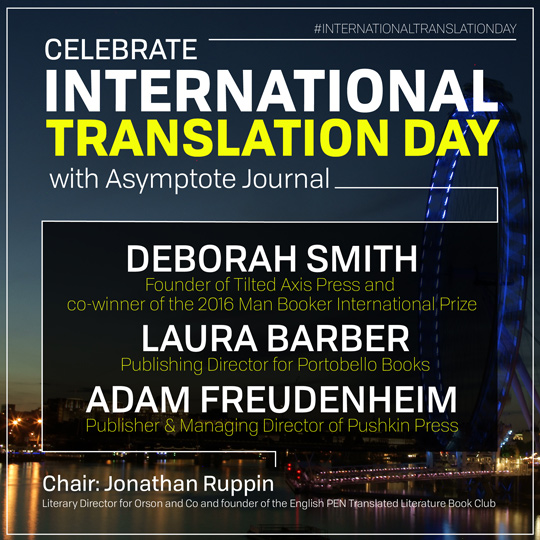Over the past ten years the European Literature Network—a tiny organization, run on a shoestring budget—has firmly established itself as the foremost champion of European writing in the UK. Asymptote’s editor-at-large for Slovakia, Julia Sherwood, caught up with the network’s founder and driving force, Rosie Goldsmith, and editor, West Camel.
Julia Sherwood (JS): Rosie, your name has become synonymous with European literature in the UK. You’ve chaired numerous European Literature Nights and, more recently, the jury of the EBRD Literature Prize. I can barely imagine the UK without your organization but some Asymptote readers, who are based elsewhere, may not be so familiar with what you do. Can you tell us what got you to start European Literature Network and what it does?
Rosie Goldsmith (RG): It all started with the European Literature Night (ELN) at the British Library in 2009, hence the rather long name, European Literature Network. I was asked to chair that and be one of the judges. We had to select from about 50-70 texts. Initially it was just me—I’d just left my job with the BBC, I had time on my hands, and when ELN was over, I felt that the momentum should be kept. After a trip to Brussels for the European Union Literature Prize with some twenty editors and publishers, I suggested that we keep this going. So many great books are being published but few people know about them, so I decided to do something I care passionately about and help everyone in the trade connect and get these books to the public. I organized the first meeting at the Goethe-Institut London and later we started meeting at Europe House, which was run by the European Commission but has sadly ceased to operate after Brexit. READ MORE…






